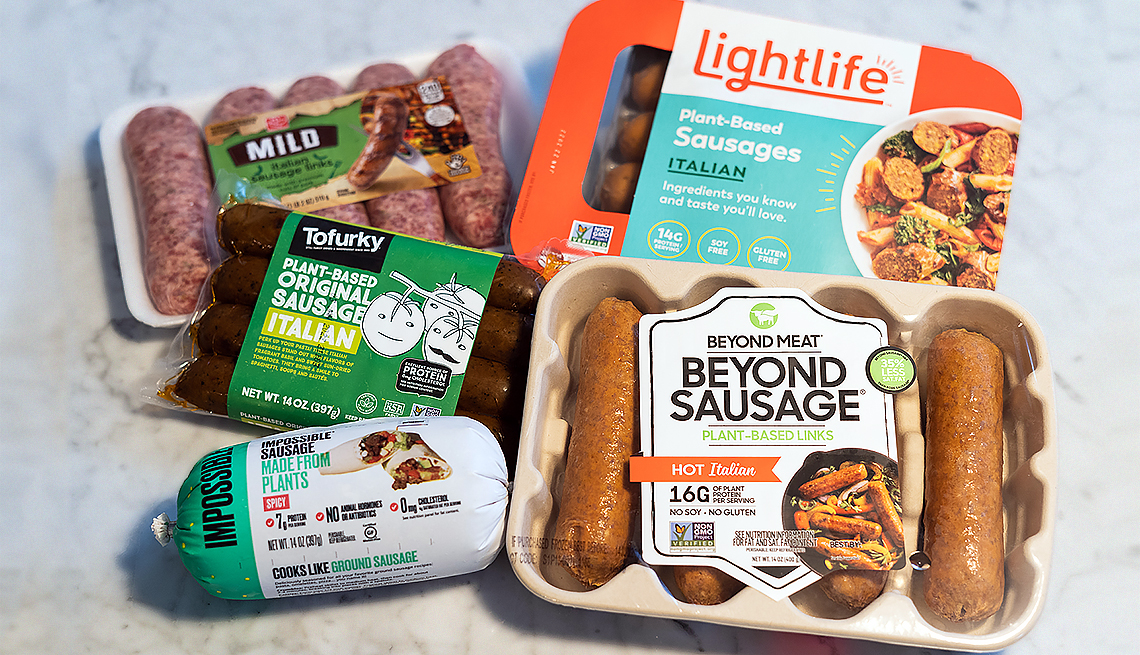AARP Hearing Center
Although most Americans don't follow a vegan or vegetarian diet, the popularity of plant-based meat alternatives has taken off in recent years with the introduction of a new generation of meatless burgers from the likes of Impossible Foods and Beyond Meat. But while the faux burgers succeeded in looking and tasting more like real beef than the veggie-based offerings of the past, they did not necessarily turn out to be a healthier alternative.
But that didn't prevent people from trying them. In 2019, the plant-based food industry experienced significant year-over-year growth (11 percent) compared to other retail food sales (2 percent), according to the Plant Based Food Association.
Not surprisingly, the makers of plant-based foods are on the hunt for the next big thing in meatless meat, and everyone's favorite cookout food, sausage, is high on the list. Here's a nutritional comparison of meat and meatless sausages as well as closer look at the four plant-based sausage brands you're most likely to find at the supermarket.
Nutrition: Pork sausage vs. plant-based alternatives
The key ingredient in vegan sausage is typically either pea protein or soy protein, along with one or more oils (canola, coconut, sunflower), spices and other plant-based additions. Nutritional value varies depending on the manufacturer's precise recipe.
Top Reasons Why People Try Plant-Based Alternatives to Meat
- They like to try new foods.
- They’ve been hearing a lot about them and were curious.
- They’re trying to eat less meat.
- They believe plant alternatives are better for the environment.
- They thought it would taste good.
Source: Food Insight Survey
"The beauty of all these products is they have to have that nutrition facts panel,” says Joan Salge Blake, a clinical professor of nutrition at Boston University. “So you can see what [are] the calories? What is the saturated fat? What's the sodium?"
Blake recommends comparing various products to determine which one best meets your specific nutritional needs. Look for the “percentage of daily value” column (sometimes listed as “%DV") on the nutrition facts panel, which shows how much a serving of food contributes to a typical 2,000-calorie daily diet. If something is 20 percent or more of the recommended daily value per serving, that's high; if it's 5 percent or less, that's low. Keep in mind that serving sizes will vary by product.





































































